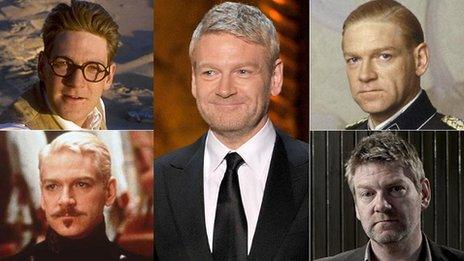Kenneth Branagh goes back to basics for Cinderella
- Published
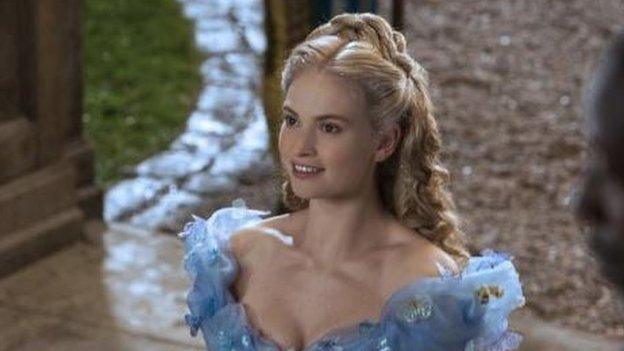
Lily James, who plays Cinderella, is best known for playing Lady Rose in Downton Abbey
In recent years, Hollywood remakes and re-imaginings of classic fairytales have come thick and fast - all darker, more adult versions of tales that originally appeared in cinemas.
But the latest Cinderella is bucking the trend - and seemingly appealing to audiences as a result.
Directed by Sir Kenneth Branagh, Cinderella is a live-action version of Disney's classic 1950 animation that has taken $70m (£43.1m) on its opening weekend in the United States.
Yet this adaptation is completely faithful to the traditional story - including wicked stepmother, fairy godmother, glass slipper, handsome prince and happy ending.
British actress Lily James, best known as Lady Rose from ITV's Downton Abbey, stars as Cinderella. Cate Blanchett plays the stepmother and Helena Bonham Carter is the fairy godmother.
"Keeping it classic is the twist," says Branagh, who started his directing career in 1989 with his adaptation of Shakespeare's Henry V.
"I always felt that it's better to do a modern version of a story using the historical perspective, than say, make a story of Cinderella in Brooklyn in 2015.
"I find that when you try and update Shakespeare to a contemporary setting too, you always pay a price.
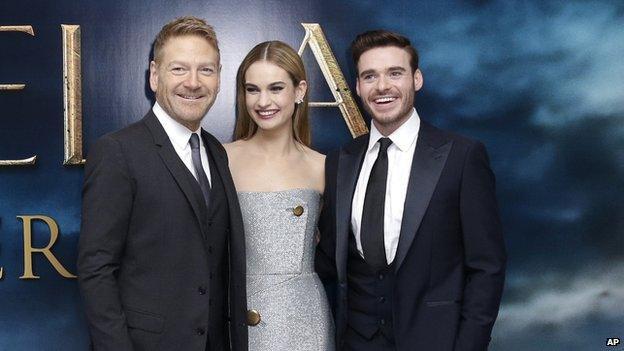
Sir Kenneth Branagh with Lily James and Richard Madden at Cinderella's UK premiere
"In this case, the original material of Cinderella is far richer than my ideas, so it seems to me that it's my job to make it simple. Just let the fairytale speak, because it affects us in a more complicated way than we think.
"Audiences have already come up to me saying the film is about patchwork families, about child bereavement, about the politics between women these days. Fairytales are a psychological brain-worm that need to be left alone to do their work."
Helena Bonham Carter says that at first she was dubious "as to whether a straight version would work".
"I think it's a really good film, but it could so easily have been bad. I was saying: 'So you're really going to do a completely straight version of Cinderella? No gimmicks, no extra frills, no 3D?'
"It's very classic, but they know me, and they allowed me not to be that straight in my own role."
Just as audiences seem to have taken to the film, critics such as the Guardian's Guy Lodge comment that "while it might have been nice to see the new-model Cinderella follow Frozen's progressive, quasi-feminist lead, the film's naff, preserved-in-amber romanticism is its very charm".
But James disagrees that this Cinderella is an old-fashioned heroine, pointing out that at the start of Disney's 1950 classic, Cinderella "is staring out of the window dreaming of the prince and waiting for him to rescue her".
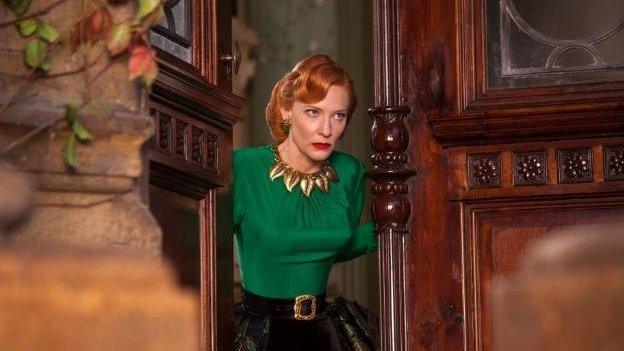
Cate Blanchett: "There's not a cynical bone in this film's body and that's its strength"
"This Cinderella doesn't do that at all. I think we make it very clear that everything she does is her choice - even deciding to stay on at her parents' house with such wicked treatment from her stepmother.
"She is told by her dying mother to 'have courage and be kind' and this is the film's, and Cinderella's, backbone."
This is the first major leading role for Surrey-born James. "Not even a big TV series like Downton could prepare me for this fuss," she says.
"I am getting slightly carried away. I keep seeing giant posters of me all over the place in a big blue dress and people shouting my name.
"I'm trying to enjoy the magic actually - this is the fairytale aspect of it for me, personally. It's quite something that so many little girls are going to think I'm Cinderella."
James has dismissed speculation that her waist had been digitally altered to make it smaller as "irrelevant", claiming that fans were interested in Cinderella because of her "morals".
Cate Blanchett agrees that the core of the film is "kindness", adding that it is "an unusual quality these days. There's not a cynical bone in this film's body and that's its strength.
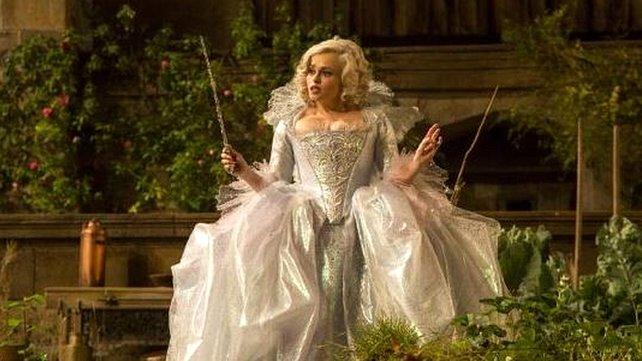
Helena Bonham Carter is more used to roles in quirky remakes of classic stories
"There is cruelty and jealousy in the movie too, but too often we don't value kindness. In today's world you think someone who is kind is a doormat, and the fact this triumphs is really heart-warming."
Branagh, who previously directed Marvel's Thor, describes kindness "as its own super-power. It is a dark world and children do need to understand they need courage and resilience to get through it.
"People often compare the story of Shakespeare's King Lear in relation to Cinderella. There is a resemblance there - a father making a tragic error and three daughters; great cruelty and great kindness.
"This film is all about the difficult but simple choice to be good and kind. Whether you're dealing with Shakespeare or the great fairy stories, they are all great big metaphors for human nature.
"And regardless of what happens to this film version, I believe this is why the tale of Cinderella will keep enduring."
Cinderella is out in the UK on 27 March.
- Published16 March 2015
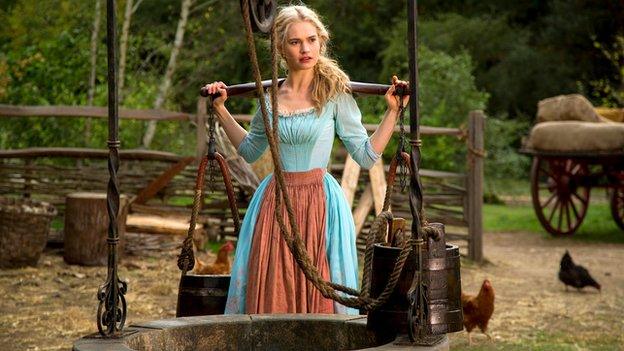
- Published16 June 2012
